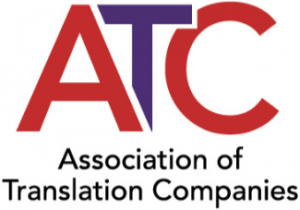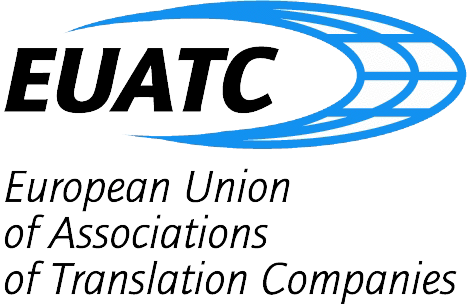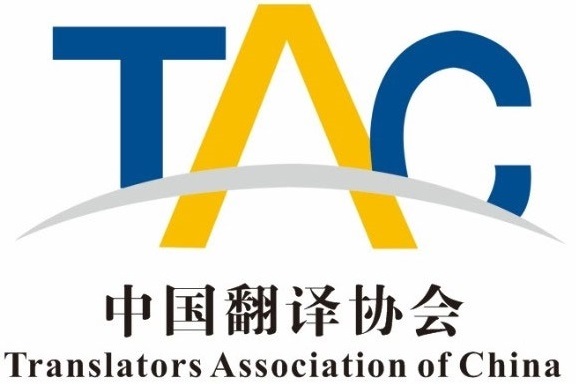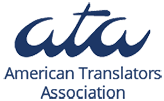We work hard at CTS to ensure our service will exceed your expectations.
We strive to provide you with high quality and hassle-free translation and interpreting services.
CTS offers a wide range of language services to support your business operations. We aim to exceed your expectations on all of our services, on every occasion.
Professional interpreters for your meetings and events, anywhere in the world.
Professional translations of your documents, websites, software, apps, and multimedia.
Subtitles of your videos that are every bit as funny or informational as the original.
We completed our first translation project in 1998. Since then, over 18,000 businesses and private individuals have used our translation and interpreting services worldwide.
Words translated since 1998
Minutes transcribed since 2011
Minutes subtitled since 2014
Projects completed since 1998
As a leading Hong Kong translation company, we are perfectly positioned to support your business communications. Our mission is to help Hong Kong and overseas companies succeed in each other’s markets, one word at a time.
Drive customer engagement by translating your marketing content in a way that feels local.
Our office in Hong Kong is supported by our teams in Shanghai, London, New York, and Sydney.
We donate to panda conservation projects in China, supporting a wide variety of initiatives.
We utilize industry-leading QA software to eliminate errors and improve accuracy.
We have been providing translation and interpreting services for two decades.
Our certified translations fulfil the requirements and specifications set by the HK government.
CTS provides professional translation services in Hong Kong to international companies and global brands. We work with clients from all industries and sectors, from tourism and tech to marketing and manufacturing.
We have completed thousands of translation projects over the last two decades, learning many valuable lessons along the way. Below we share five helpful tips to help you get the most out of your translation projects.
Many translation companies in Hong Kong offer “unlimited revisions” on their translation services. However, at CTS, we do our best to understand our client’s requirements and provide translations that are never sent back for corrections. In other words, we aim to deliver high-quality translations that satisfy the client on the first attempt.
If your documents require translation into Chinese, you should ensure that the translated text is reviewed for typing errors. The proofreading task will need to be performed manually by a human since Microsoft’s spell checker cannot accurately detect typing errors in Chinese. This is because there are no spelling mistakes in Chinese, only incorrect usage.
English text contracts by 33% once it is translated into Chinese. This is something to keep in mind if you are translating material for publishing, for example, websites, books, or magazines. Working with a company such as CTS which offers desktop publishing (DTP) services, means that your documents will always be perfectly translated and formatted.
Localisation is the process of adapting a translated text so that it is linguistically and culturally appropriate for a specific country or region.
Red represents danger in many countries, but it is a lucky colour in Chinese culture. The phrase “Stocks are in the red, is it time to sell?” would cause a lot of confusion to a Hong Kong audience if the translation did not explicitly state that the stocks were falling.
In Chinese, large numbers are counted in a unit called 萬 (pronounced maan), which represents ten thousand. One hundred thousand would be localised as ten 萬 (ten sets of ten thousand). Using 萬 correctly is essential to good localisation. Furthermore, when it comes to money, it is important to localize the currency to the Hong Kong Dollar (HKD), which is the official currency of the Hong Kong Special Administrative Region (HKSAR).
The official formatting of dates in Hong Kong is YYYY/MM/DD. However, due to a European influence, it is common to see dates formatted as DD/MM/YYYY. A good localisation should format dates correctly for a Hong Kong audience.
Before starting your translation project, it is important to find out from your translation provider whether they will use machine translation. CTS does not recommend using machine translations for several reasons:
Despite the advancement of machine learning and artificial intelligence, machine translation still cannot produce native-sounding translations. This is particularly true for translations between English and Chinese since the two languages are vastly different in language and culture. Furthermore, machine translation tends to produce awkward-sounding translations as it cannot restructure sentences effectively.
With the rise of data breaches in a highly digitized world, the security and confidentiality of your documents are more important than ever. Free machine translations require you to upload information to cloud-based platforms, and transferring important data outside company walls via potentially unsecure connections is never a good idea.
The quality of the machine translation depends on the quality of the original text. If the document is not written by a native speaker, or there is missing information, the machine translation quality will suffer. On the other hand, a human translator can ask questions and use their judgement to produce a high-quality translation on every occasion.
Translation technology can boost the quality of your translation projects. Some of the software that are available to professional translation companies include:
Translation Memory is a database that stores “segments” of text which can be recalled on a new translation project. TM supports translation processes by significantly improving the consistency and efficiency of our translations, which leads to increased quality and decreased costs.
Termbase is a terminology management software designed to collect, maintain, and access terminological data. If you have preferred translations of key terminologies or already have a glossary that you would like to use, we could use Termbase to help you apply them consistently to all your projects.
QA tools can assist in identifying common mistakes found in translated texts, examples include:
One of the questions we often get asked by clients is whether their files should be translated into Mandarin or Cantonese. The question is technically incorrect as Mandarin and Cantonese are spoken languages. The written forms of Chinese are Simplified Chinese and Traditional Chinese.
Between 1950 and 1960, the government of China introduced a simplified version of Chinese to boost literacy. Derived from Traditional Chinese, the simplified Chinese characters are written with fewer strokes, making them easier to write.
Today, Hong Kong, Macau, and Taiwan have continued to use Traditional Chinese characters. Whereas Mainland China, Malaysia, and Singapore have adopted Simplified Chinese. Generally speaking, Chinese people can read both Simplified and Traditional Chinese. Having said that, it is important to ensure your documents are translated for the correct markets since there are many terminological differences between the mentioned countries and regions.
Furthermore, machine converting your documents from Simplified Chinese to Traditional Chinese is not advised as localisation is required to ensure your documents are suitable for each target market.
CTS offers translation and interpreting services in over 120 languages. Contact us directly for any language or dialect that you do not see listed below.
CTS is accredited and certified by professional translation associations in the UK, EU, USA, and China. We maintain professional standards in translation and conduct all our business dealings ethically.




Our clients praise us for our accurate translations, personable service, and on-time delivery.
Here are some of the amazing things they have said about working with us.
CTS stands for Chinese Translation Services. We are a leading translation company in Hong Kong, providing high-quality translations in over 120 languages. Our mission is to help Western and Hong Kong companies thrive and succeed in each other’s markets through our professional services. We offer a wide range of translation solutions, from document translations to interpreting services, ensuring clear and effective communication in various industries and sectors.
The cost of our translation services depends on several factors, including the type of content, the word count, the language pair, and the turnaround time. Generally, our translation services are charged per word or per page. Additional services, like certification, proofreading, and editing, can also affect the overall cost.
The time required to complete a translation project varies depending on the complexity and length of the document. Simple documents with a few pages may take a couple of days, whereas more complex or lengthy documents might require a few weeks or more. Urgent projects can often be accommodated through expedited services, but this will come at an additional cost.
To get a quote, simply send us the document by email or via our quotation forms, and we will get back to you within 24 hours.
Some of the languages we offer include Chinese, French, Spanish, Italian, German, Japanese, Korean, Thai, Indonesian, Vietnamese, Russian, and Arabic. In total, we can translate over 120 languages. Please get in touch for the full list of the languages we can translate.
We serve clients across a wide range of industries, including legal, medical, technical, financial, marketing, and more. Our team of specialist translators has the expertise to handle industry-specific terminology and content, ensuring that your translations are accurate and contextually appropriate. We understand the unique needs and challenges of different industries and tailor our services to meet those needs. Whether you need legal documents, medical records, technical manuals, marketing materials, or any other type of content translated, we have the knowledge and experience to deliver high-quality translations.
Absolutely. Legal and financial translations are one of our key strengths. Our team of experienced translators specialises in both legal and financial translations, and they hold relevant qualifications such as law degrees and finance certifications. This expertise ensures that even the most complex legal and financial documents are translated accurately and precisely.
We take confidentiality very seriously and have strict policies in place to protect your information. We strictly limit access to customer data only to authorised personnel who require it for their specific job responsibilities. All sensitive customer information is encrypted, both in transit and at rest. Lastly, any third parties involved in handling customer information are bound by contractual agreements to maintain the same level of confidentiality and security.
Translation involves converting text from one language to another while maintaining the original meaning. Transcreation, on the other hand, goes a step further by adapting the content to fit the cultural and emotional context of the target audience. This often involves creative adaptation to ensure that the message has the same impact and resonance in the new language. Transcreation is particularly important for marketing and advertising content, where the goal is to evoke specific emotions and responses from the audience. Our team is skilled in both translation and transcreation, allowing us to meet the diverse needs of our clients.
A certified translation is a document that has been translated, signed, and stamped by an accredited translator. When you open a bank account in Hong Kong or apply for a visa at a foreign consulate, you may be asked to provide certified translations of your supporting documents. Documents that typically require certified translation include passports & IDs, birth and death certificates, marriage and divorce certificates, diplomas, bank statements, Certificates of No Criminal Conviction (CNCC), medical records, and business documentation such as contracts.